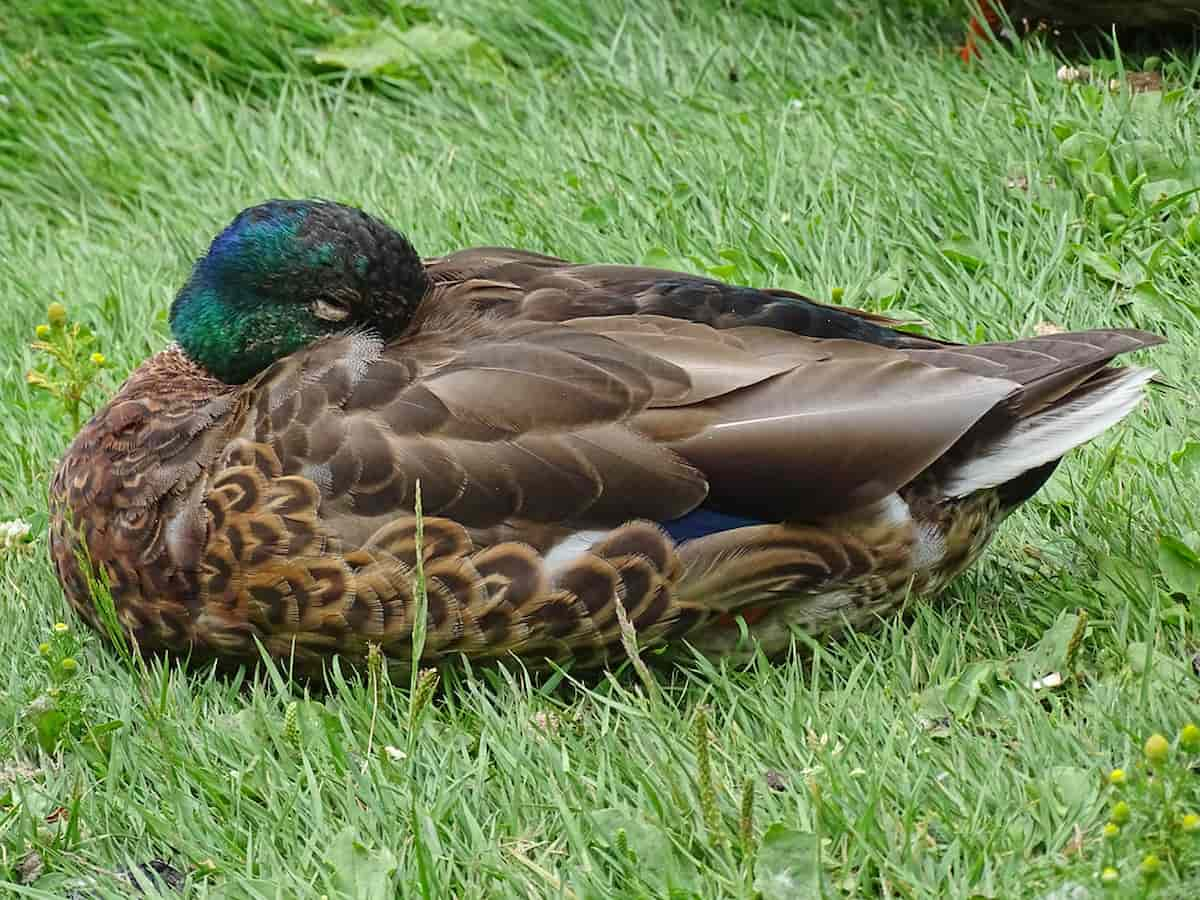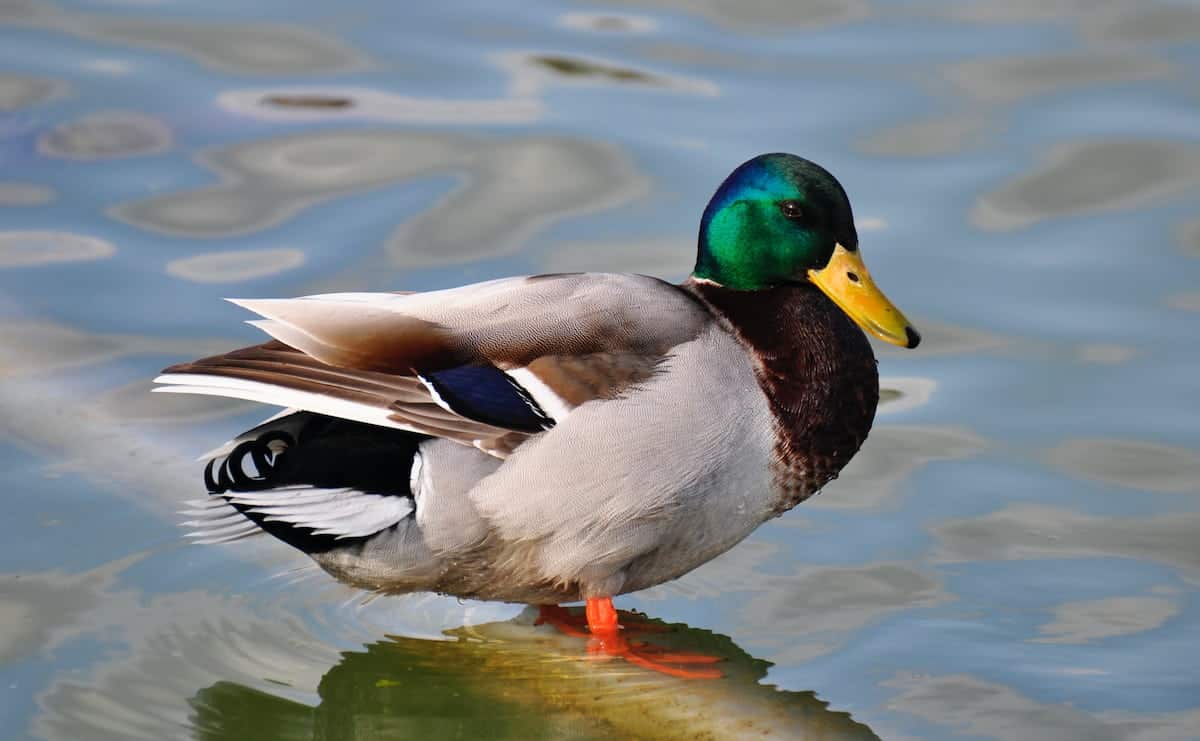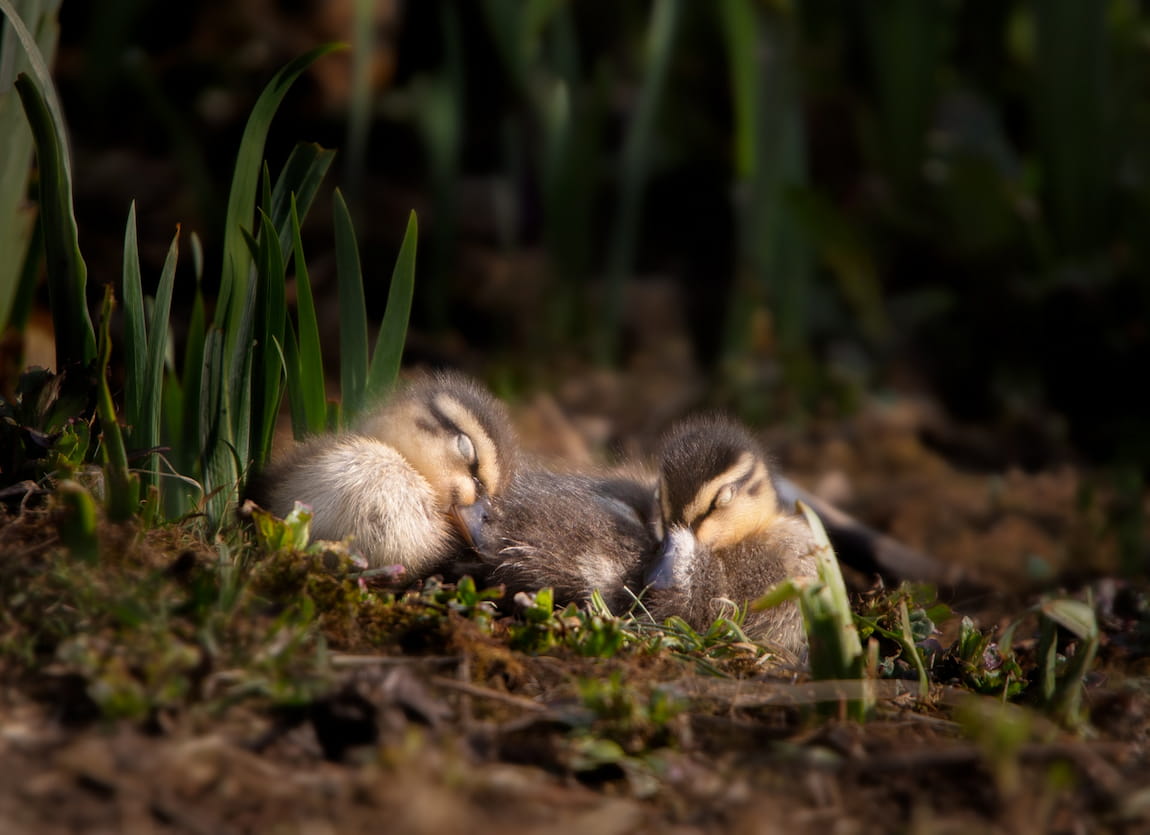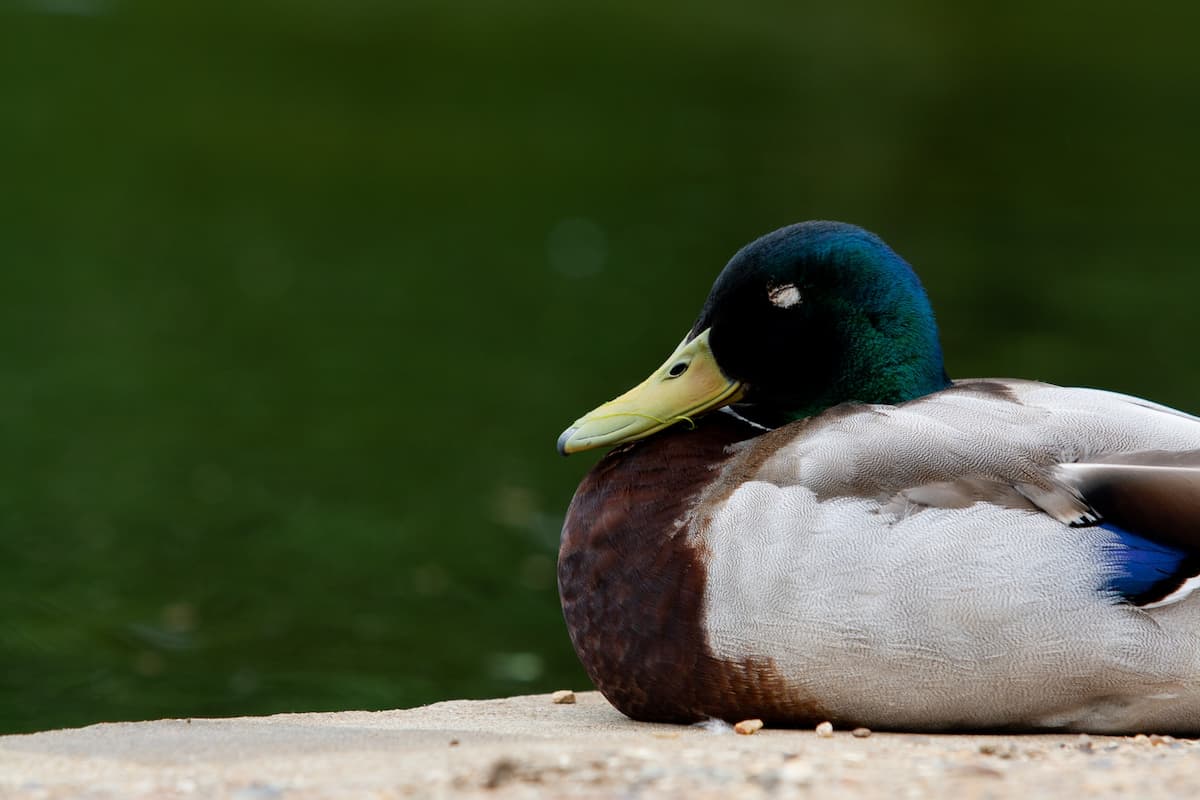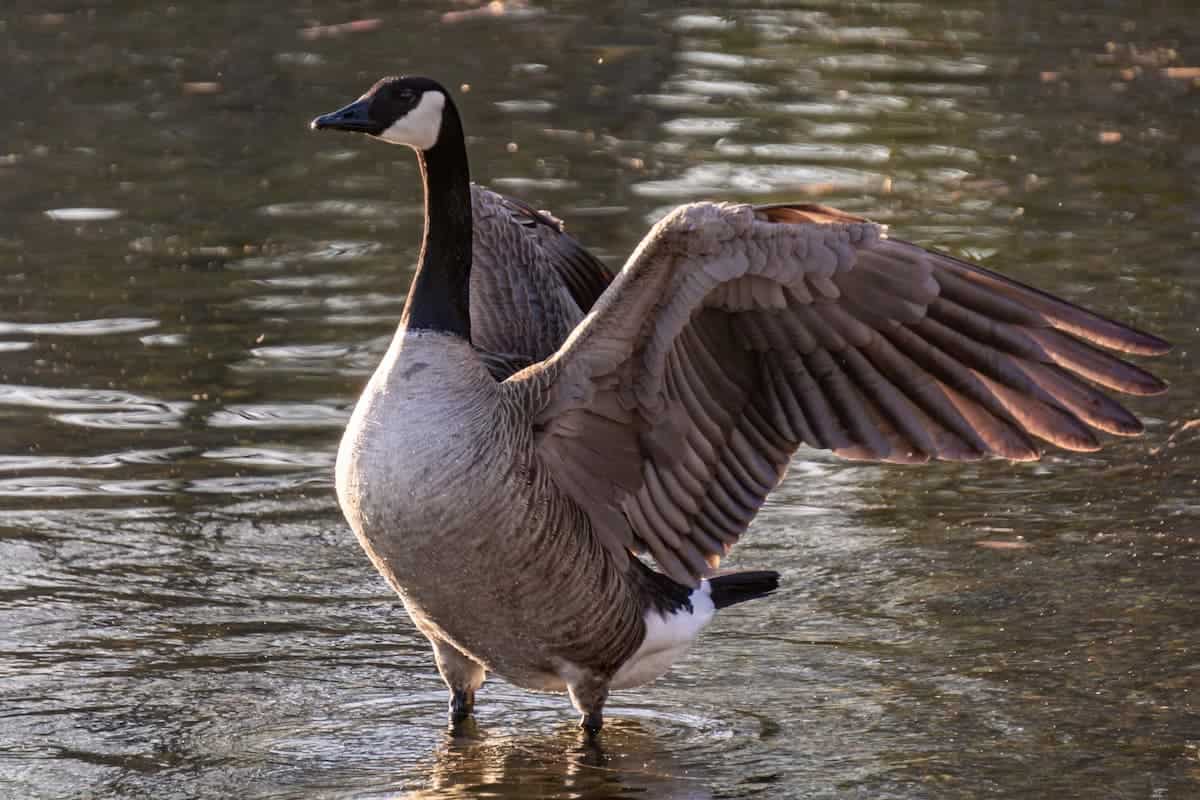Ducks are interesting creatures. One of the most curious things about them is that they sleep with their head pointed backward. This may seem strange to us, but there is a method to their madness! In this article, we will explore the reasons why ducks sleep with their head backward and what benefits it provides them.
Why Do Ducks Sleep with Their Head Backward?
When you see a duck swimming, it always looks like they’re working hard, churning their little legs as fast as they can to get from one place to another. But ducks actually spend a good portion of their day just hanging out, and when they do, they like to take a little nap.
When ducks sleep, they often tuck their head back into their feathers to stay warm, and this position also allows them to keep an eye out for predators. Sleeping with their head backward also helps ducks to relax their neck muscles after a long day of swimming. This is a natural adaptation to help them stay safe and comfortable.
What Are the Benefits of Ducks Sleeping with Their Head Backward?

Many people are familiar with the distinctive posture of ducks, with their bills tucked underneath their feathers and their head pointing backward at a sharp angle. While this may seem like an odd position to sleep in, there are actually several benefits that ducks derive from sleeping this way.
Firstly, by keeping their head aimed backward, ducks can rest more easily as it allows their neck muscles to relax. Additionally, having their head pointed backward helps to maintain balance when resting on unsteady surfaces. Finally, sleeping in such a compact position allows ducks to conserve body heat more efficiently and stay warm even under cold conditions.
Overall, these are just a few of the many reasons why sleeping backward is such an important part of a duck’s daily life.
It Helps Their Neck Muscles Relax
Ducks have many adaptations that help them to survive in their natural habitat. One such adaptation is the way they sleep. Ducks often sleep with their head backward so that they can relax their neck muscles. This position also allows them to keep an eye out for predators, as ducks sleep with one eye open.
In addition, ducks have a special layer of feathers that helps to insulate their bodies and keep them warm in cold weather. While ducks may seem like simple animals, they are actually quite fascinating creatures.
It Helps Them Conserve Body Heat
When it comes to staying warm, ducks certainly seem to have it figured out. Unlike many birds that simply huddle together for warmth, ducks have evolved a unique sleeping position in which they turn their heads all the way around and rest them on their backs. This surprising sleeping position is actually a clever adaptation that allows ducks to stay warm even as they rest.
The reason this unusual sleeping position helps ducks conserve body heat is because the layer of feathers on their neck is thinner than those one their back. By placing this area closely against their own internal body heat, ducks reduce the amount of energy that is used to maintain a consistent temperature throughout their bodies.
By keeping this area nice and snug against their feathered back while they sleep, they also eliminate unnecessary exposure to cold weather and help prevent heat loss. Thus, when it comes to staying warm on cold nights, ducks sleep with their head backward in a way that truly makes sense!
Do Ducks Ever Sleep with Their Head Forward?
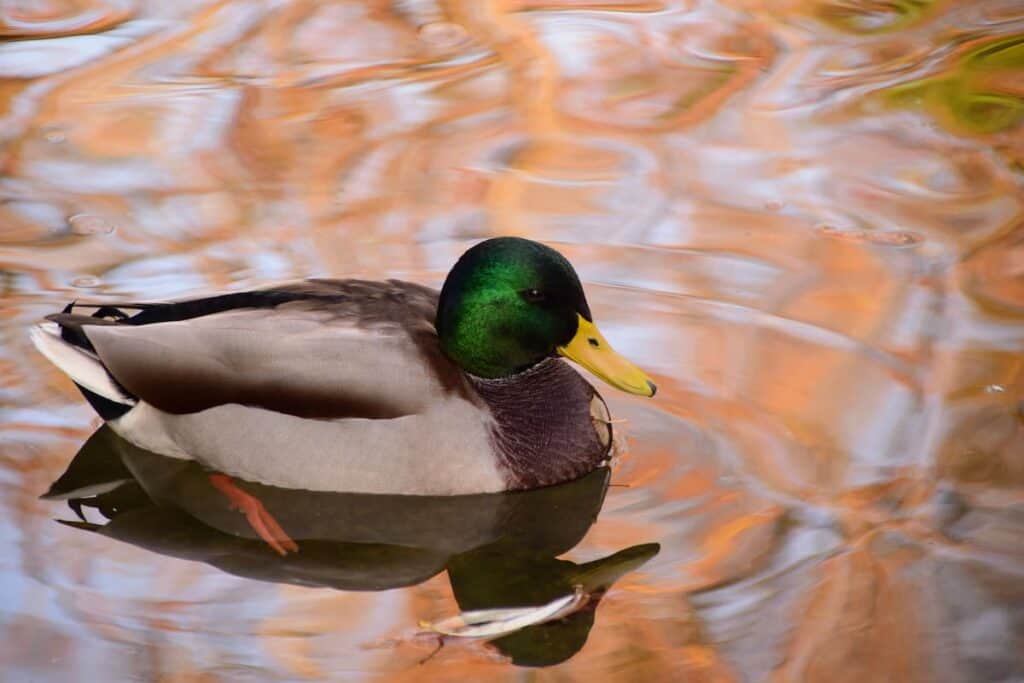
You might be wondering if ducks ever sleep with their head forward. The answer is yes! When ducks are feeling particularly relaxed or sleepy, they may let their head droop down into their chest.
This is particularly true in younger ducks whose heads are often disproportionately large. This position is less common, but it does happen from time to time. Older ducks usually sleep in the typical position of one leg tucked, and head turned around with their beak tucked under their feathers.
What Are the Drawbacks to Ducks Sleeping with Their Head Backward?
There are a few potential drawbacks to ducks sleeping with their head backward. Most notably, ducks are more vulnerable when sleeping in this position, as they are unable to see predators that may be approaching.
Additionally, sleeping with their head backward can put strain on a duck’s neck muscles, which is why they often take short breaks throughout the day to change positions. Overall, however, these drawbacks are outweighed by the many benefits that ducks gain from sleeping in such an unconventional way.
Do Ducks Always Turn Their Head in Same Direction When Sleeping?
No, ducks do not always turn their head in the same direction when sleeping. In fact, they often alternate between turning their head to the left and the right. This helps to evenly distribute the strain on their neck muscles and prevents them from becoming too stiff. Turning their heads in different directions also allows ducks to keep an eye out for predators even when they are asleep, despite the lack of peripheral vision.
Do All Ducks Sleep with Their Head Backward?
Yes, all ducks sleep with their head backward. This position is quite common among ducks, and is actually universal. Some ducks may choose to sleep with their head tucked under their wing instead, or tilted forward slightly, but the same ducks will also sleep with their head backward when necessary to relax and conserve heat.
How Long Can Ducks Sleep with Their Head Backward?
Ducks can sleep with their head backward for long periods of time, as this position is quite comfortable for them. Some ducks may even choose to sleep in this position all night long! However, most ducks will alternate between sleeping with their head backward and taking brief breaks in which they turn their head to the other side, or forward.
Conclusion
Ducks sleep with their head backward for a variety of reasons. This position helps them to conserve energy, rest their neck, and prevent heat loss. Additionally, it allows them to keep an eye out for predators. While there are some drawbacks to this position, such as increased vulnerability to predators, ducks typically find that the benefits outweigh the risks.
